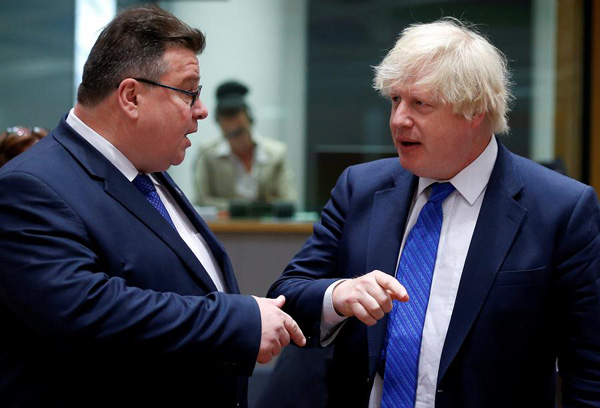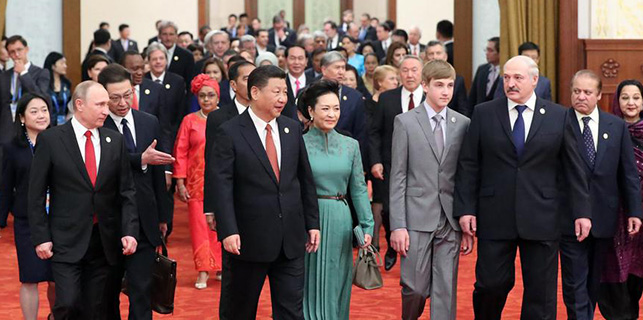EU eyes scaling up presence in Africa amid migration pressure
 |
|
Lithuania's Foreign Minister Linas Linkevicius and Britain's Foreign Secretary Boris Johnson (R) attend a European Union foreign ministers meeting in Brussels, Belgium May 15, 2017. [Photo/Agencies] |
BRUSSELS - European Union (EU) foreign ministers gave their approval on Monday to scale up the bloc's political presence in Africa, in a bid to cut down migration from the continent.
According to the main results of the EU foreign affairs council that ended Monday, which placed Africa high on its agenda, the top diplomats from EU's 28 member states underlined the strategic importance of EU engagement in the horn of Africa "through a strong political presence and a continued contribution to peace and security, including through the existing CSDP (Common Security and Defense Policy) missions and operation."
EU foreign policy chief Federica Mogherini referred to the larger picture of EU-Africa relations as "moving from a traditional aid approach to a real partnership in all fields, from climate change to security, economic development, migration and humanitarian support."
Mogherini underscored the importance of offering opportunities to young people in Africa, saying, "this is the best way to manage migration. This is also the best way of preventing radicalisation."
She added that the Africa-EU Summit, set to take place in Abidjan, Cote d'Ivoire, in November, would focus on this issue.
In the context of the unprecedented refugee crisis, Africa has been on the EU radar after an EU-Turkey deal led to a nosedive in the number of asylum seekers coming to Europe via the eastern Mediterranean route linking Turkey to Greece.
Over 181,000 migrants and refugees, most of whom use Libya as a springboard, arrived in the EU in 2016 through the central Mediterranean route.
As the deadliest route for migrants last year, the central Mediterranean route claimed the lives of 4,576 people, according to the International Organization for Migration.
The United Nations High Commissioner for Refugees (UNHCR) warned in early March that the refugee situation in East Africa and the Horn of Africa was alarming due to grave food shortages and armed conflicts.









